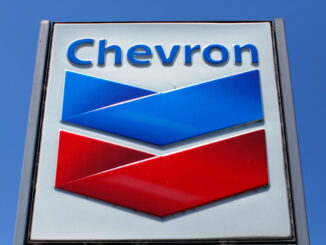
In a bold move signaling a strategic pivot, UK oil supermajors BP and Shell have inked new deals with Libya’s National Oil Corporation (NOC) to explore and develop oil and gas fields, marking a significant return to the North African nation after years of instability. This development, reported by OilPrice.com, underscores a broader trend: major Western oil companies, including UK giants, are following their U.S. counterparts in prioritizing high-potential oil and gas projects abroad over aggressive renewable energy transitions at home.
As Libya’s oil sector shows signs of recovery, the question looms: can the production potential and financial upside from these ventures bolster BP and Shell’s bottom lines enough to keep BP, in particular, from remaining a takeover target?
Is Oil & Gas Right for Your Portfolio?
UK Oil Majors Follow U.S. Lead: Oil and Gas Over Renewables
The global energy landscape has undergone significant shifts in recent years. While European supermajors like BP and Shell once championed ambitious renewable energy agendas—BP’s “Beyond Petroleum” campaign and Shell’s forays into wind and solar—financial realities have prompted a recalibration. As noted in OilPrice.com, BP and Shell are now abandoning unprofitable renewable projects, refocusing on their core competencies in oil and gas.
This mirrors the strategy of U.S. majors like ExxonMobil and Chevron, which have consistently prioritized hydrocarbon production, particularly in high-yield regions like Libya, where 48 billion barrels of proven crude oil reserves—the largest in Africa—beckon. Libya’s appeal lies in its high-quality, light, sweet crude and untapped exploration blocks. The country’s recent production milestone of 1.59 million barrels per day (bpd) in November 2024, coupled with ambitions to reach 2 million bpd by 2028, has drawn international oil companies (IOCs) back despite lingering geopolitical risks. BP has signed a memorandum of understanding to assess hydrocarbon potential in the Messla and Sarir fields, while Shell will evaluate the al-Atshan field and other NOC-owned assets. These deals follow the return of U.S. firms like Weatherford and the participation of ExxonMobil and Chevron in Libya’s first oil bid round in 18 years, signaling a competitive race for Libyan acreage.
The shift away from renewables is driven by stark financial contrasts. Renewable projects, particularly in Europe, have yielded meager returns, with BP and Shell facing massive impairments on wind and solar ventures. In contrast, oil and gas projects in Libya promise higher margins, especially as Brent crude hovers around $73 per barrel. For UK majors, the decision to follow U.S. firms abroad reflects a pragmatic acknowledgment: hydrocarbons remain the backbone of their profitability, and regions like Libya offer growth opportunities that domestic renewable markets cannot match.
Libya’s Production Potential: A Financial Lifeline?
Libya’s oil sector is on an upward trajectory, but its potential is tempered by challenges. The NOC’s agreements with BP and Shell focus on exploration and feasibility studies, not immediate production. BP’s work in the Messla and Sarir fields, which are among Libya’s largest, could unlock significant reserves if exploration proves successful. Shell’s evaluation of the al-Atshan field, located in the prolific Sirte Basin, similarly holds promise. The NOC estimates that the 22 exploration blocks offered in 2025 could contain 1.63 billion barrels of oil equivalent, a figure that could transform Libya’s output if developed efficiently. Financially, Libya’s production potential is enticing. At 2 million bpd by 2028, Libya could generate annual oil revenues of approximately $43 billion at current Brent prices, assuming stable exports. For BP and Shell, securing a share of this output could significantly boost upstream earnings. BP, for instance, reported a Q1 2025 net profit of $1.38 billion, down 49% year-on-year, with cash flow declines and rising net debt. A successful Libyan venture could provide a steady stream of high-margin crude, offsetting weaker performance in other segments. Shell, with a stronger Q1 2025 net profit of $5.58 billion, stands to reinforce its position as a global LNG and oil trading leader by tapping Libyan resources.
However, risks abound. Libya’s oil infrastructure remains under militia control, and recent clashes in Tripoli following the assassination of a militia leader highlight the fragility of the security landscape. OilPrice.com notes that production shutdowns, like the 2024 blockade that halved output to 591,000 bpd, cost Libya $120 million in just three days. For BP and Shell, these disruptions pose a threat to project timelines and returns. Moreover, the capital-intensive nature of exploration in Libya requires $3-4 billion to hit its 1.6 million bpd target by 2026/27—demands significant upfront investment, which could strain BP’s balance sheet given its higher debt levels compared to peers.
Can Libya Save BP from Takeover Speculation?
BP’s foray into Libya comes at a critical juncture. The company’s market capitalization, at £56 billion ($74 billion), is less than half of Shell’s $200 billion, and its stock has shed nearly 30% over the past year. This weakness, coupled with strategic missteps—first a heavy pivot to renewables under former CEO Bernard Looney, then a rapid return to oil and gas under Murray Auchincloss—has fueled takeover speculation. Shell and ExxonMobil have been identified as potential suitors, with Shell reportedly considering a bid contingent upon further declines in BP’s stock price. A Shell-BP merger could create a behemoth with 5 million barrels of oil equivalent per day, outpacing ExxonMobil, but regulatory hurdles and BP’s debt load present challenges.
Libya’s production potential could bolster BP’s financials, but it’s unlikely to eliminate takeover risks in the near term. The exploration phase is capital-intensive and carries no guaranteed output. Even if successful, production ramp-ups would take years, while BP’s immediate challenges—weak Q1 results, reduced share buybacks, and investor dissatisfaction—persist. Libya’s 1.63 billion barrels of potential reserves are significant, but BP’s share would likely be a fraction, insufficient to transform its valuation overnight. Moreover, geopolitical risks could delay or derail returns, keeping BP vulnerable to activist investors like Elliott Investment Management, which holds a 5% stake and is pushing for asset sales. Shell, by contrast, is better positioned. Its stronger balance sheet and diversified portfolio, including leadership in LNG trading, provide a buffer against Libyan uncertainties. Shell’s CEO Wael Sawan has downplayed a BP takeover, prioritizing share buybacks, but market analysts suggest a bid could materialize if BP’s valuation weakens further. For BP, Libya is a high-stakes bet: success could bolster its upstream portfolio, but failure—or prolonged instability—could solidify its status as a takeover target.
Conclusion:
A Risky but Strategic Move BP and Shell’s return to Libya reflects a broader industry trend: Western oil majors, led by U.S. firms, are doubling down on oil and gas in high-potential regions rather than chasing unprofitable renewable dreams. Libya’s vast reserves and production ambitions offer a tantalizing opportunity, but the financial upside is not guaranteed. For BP, the Libyan venture could provide a lifeline, boosting upstream earnings and signaling a return to core strengths.
Libya’s oil is also light, sweet crude and a good substitute for U.S. shale. For those who do not want to trade with the United States, this is another option.
However, the timeline, risks, and capital demands mean it’s unlikely to fend off takeover speculation in the short term. Shell, with its stronger financial footing, is poised to capitalize on Libya’s potential without the same existential pressures. As the UK majors follow their U.S. peers into Libya, the message is clear: in the race for energy dominance, oil and gas remain king—for now.
*Sources: OilPrice.com, Reuters, Bloomberg, Financial Times*
Is Oil & Gas Right for Your Portfolio?
Crude Oil, LNG, Jet Fuel price quote
ENB Top News
ENB
Energy Dashboard
ENB Podcast
ENB Substack






